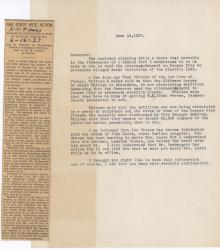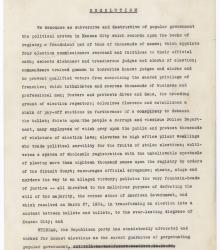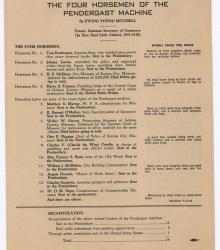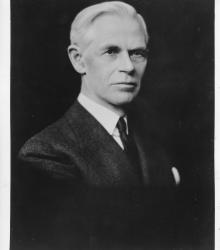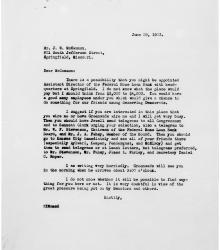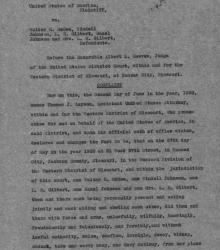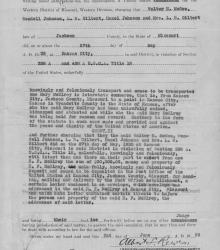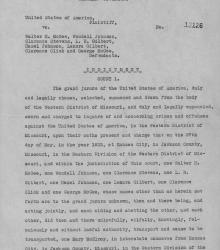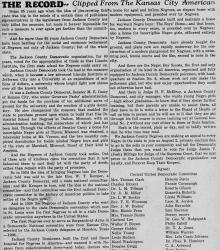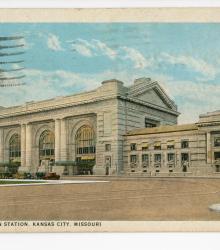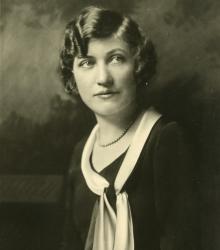Unsigned letter to Governor Lloyd C. Stark, including a clipping from the Kansas City Times, regarding the demand to prosecute violations of election laws. The letter also mentions that Prosecutor Tom Graves intends to marry the widow of John Lazia.
McElroy, Henry F.
Resolution passed by "a body of Republicans and other patriotic citizens" repudiating First Ward Committeeman Ray Horton "because of his many acts in aiding and abetting the Lazia-McElroy-Pendergast machine," voter fraud, and demanding that Governor Guy Park take steps to clean up the Board of Election Commissioners in Kansas
Pamphlet written by Ewing Young Mitchell, former Assistant Secretary of Commerce in Franklin D. Roosevelt administration's first term.
Henry F. McElroy, Kansas City's first city manager and proponent of the Ten Year Plan.
Letter from Ewing Young Mitchell, Jr. to J. W. McCammon on June 29, 1933. Mitchell suggests that McCammon travel to Kansas City to convince James P. Aylward, William T. Kemper, Sr., Thomas J. Pendergast, and Henry F.
Complaint for Criminal Case No. 12126: United States vs. Walter H. McGee, Wendell Johnson, Clarence Stevens, L. R. Gilbert, Hazel Johnson, Lenora Gilbert, Clarence Click, and George McGee, Defendants. In this document, Thomas J.
Warrant to Apprehend for Criminal Case No. 12126: United States vs. Walter H. McGee, Wendell Johnson, Clarence Stevens, L. R. Gilbert, Hazel Johnson, Lenora Gilbert, Clarence Click, and George McGee, Defendants.
Indictment for Criminal Case No. 12126: United States vs. Walter H. McGee, Wendell Johnson, Clarence Stevens, L. R. Gilbert, Hazel Johnson, Lenora Gilbert, Clarence Click, and George McGee, Defendants.
A reprint of an article clipped from defunct Kansas City newspaper, The Kansas City American. This clipping documents the shift in local and national politics in which black voters begin to support Democratic candidates. Felix H. Payne and the Central United Democratic Committee provides an endorsement for Judge James V.
On June 17, 1933, four law enforcement officers and their prisoner, Frank Nash, were fatally wounded in a botched rescue attempt outside Union Station. The story of the Union Station Massacre, as it became known, centered on Frank Nash, who had been convicted of three separate crimes of a serious nature: murder, armed burglary, and then assault.
One of Kansas City's most sensational and ultimately tragic crimes began on May 27, 1933 with the kidnapping of Mary McElroy, the daughter of controversial city manager Henry F. McElroy, who had close ties to the political machine operated by “Boss” Tom Pendergast. She was released after 34 hours of captivity, following payment of a $30,000 ransom, but she never recovered from the emotional turmoil that ensued.
Nell Donnelly and her chauffeur, George Blair, were kidnapped on December 16, 1931. Donnelly had become famous after her 1916 founding of the Donnelly Garment Company, which sold stylish but affordable dresses for daily wear by ordinary women. Backed by the sales of “Nelly Don’s,” as the dresses became known, the company grew into a multi-million dollar business with over 1,000 employees in the 1920s.
